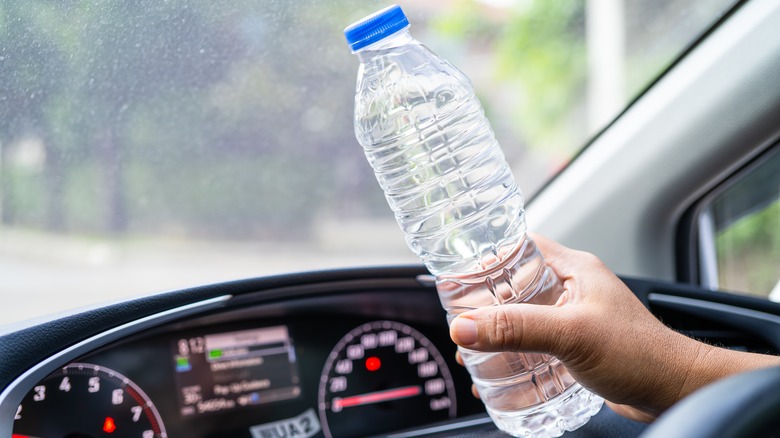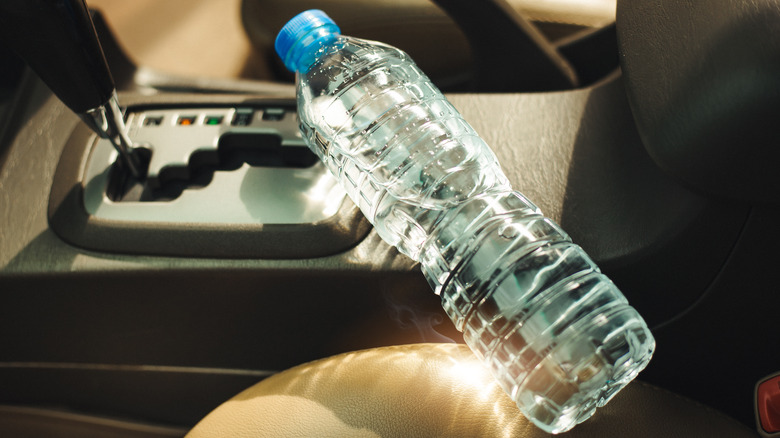Is Drinking From A Plastic Water Bottle Left In A Hot Car Safe?
In the midst of summer, it's crucial to have a stash of water bottles on hand — particularly when climbing into a hot car in the middle of the day. However, it's easy to forget about that one bottle that may have rolled onto the floor while driving. If you discover a leftover water bottle that's been roasting under your passenger seat, is it still safe to drink?
When it comes to heated plastic, most people's main concern is chemical leakage. Over the years, viral rumors have circulated around the internet with claims that dioxin is one such chemical that consumers should be worried about if drinking from a hot water bottle (via USA Today). According to the World Health Organization (WHO), dioxin is a chemical pollutant considered dangerous for human consumption, as it can impact reproductive health, immunity, and lead to the development of cancer.
While health experts have debunked this notion — stating that plastic water bottles do not contain dioxins — director of the Center for Environmental Health Engineering at Arizona State University Rolf Halden explains via USA Today that there are still "other chemicals that potentially could cause harm" if drinking out of a hot water bottle.
Hot water bottles are at an increased risk for chemical leakage
Professor in the biochemistry and molecular biology department at the University of Texas Medical Branch in Galveston, Cheryl Watson, explains via TODAY what happens when a water bottle is subjected to heat, stating, "When you heat things up, the molecules jiggle around faster and that makes them escape from one phase into another. So the plastic leaches its component chemicals out into the water much faster and more with heat applied to it."
A 2014 study published in Environmental Pollution examined 16 different brands of PET drinking-water bottles to determine levels of chemical leakage based on storage duration and temperature. The water bottles were heated to mimic the temperature of a hot car at 158 degrees Fahrenheit for a 4-week period (via Yahoo! Life). It was found that leakage levels of antimony and BPA increased in correlation with temperature and storage time. BPA is known to cause hormone disruption (per Advocate Aurora Health), while antimony has been linked to liver, heart, and kidney damage (via New Jersey Department of Health).
While the heated water bottles tested in the study contained chemical levels still within EPA regulation, study author Lena Ma believes it's best to exercise caution when it comes to water storage and to keep cases of water either in the refrigerator or at room temperature, per Yahoo! Life.


